Simple safety tips that protect independence
We tend to think of our home as the safest place to be. As long as there are locked doors, security gates and perhaps a burglar alarm, we won’t come to any harm at home. Or will we?
According to global statistics, around 50% of all accidental injuries happen in the home. And when it comes to home accidents, trips and falls are a leading cause of severe injuries.
Risk of falls
Typically, it’s young children and older people who are most at risk of falling. Whilst children seldom suffer lasting ill effects from a tumble, there can be serious consequences for older people. Broken bones or a hip fracture can easily lead to along hospital stay and loss of mobility.
Fortunately, small changes in our living spaces can help prevent accidents and enable elders, in particular, to continue living independently in their own homes.
Here are 7 practical tips to make your home safer:

1. Get rid of hazards
Loose rugs and clutter are common tripping hazards, as are electric cables stretched across the floor. Ideally, re-route cables against the wall and use clips to keep them in place. If that’s not possible, cover the cable with a rug or mat where people have to walk over it.
Choose mats with a non-slip rubber backing, or use double-sided tape to prevent them from sliding or lifting at the edges. Don’t leave discarded shoes, handbags or toys in traffic flow areas, where you could trip over them. And be sure to wipe up any spills straight away to avoid slipping.
Avoid wearing socks without shoes, especially if you have tile floors. You’ll be less likely to slip in footwear with thin rubber soles. If you have a walking stick or walker, use it when you move around your home, instead of clutching onto door frames or furniture for support.
2. Improve Lighting
Good visibility makes a big difference when it comes to preventing trips and falls. Older people commonly need to get up during the night to use the bathroom. Night lights in the bedroom, passage and bathroom are a huge help.
On staircases and entrances – common problem areas – brighter bulbs really do help prevent accidents.
3. Create a Safer Bathroom
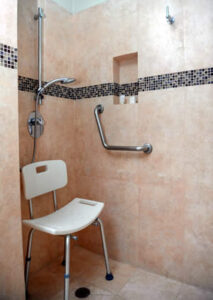 Slippery tile floors and water splashes are a recipe for disaster. Use slip resistant strips or rubber mats both inside and outside the shower to prevent falls. Grab bars in the shower, as well as near the toilet and bath, can also help prevent accidents.
Slippery tile floors and water splashes are a recipe for disaster. Use slip resistant strips or rubber mats both inside and outside the shower to prevent falls. Grab bars in the shower, as well as near the toilet and bath, can also help prevent accidents.
Shower seats can improve both comfort and safety. The wall mounted types can be folded away when not in use – but the less expensive, free-standing seats are just as effective.
Don’t keep toiletries on high, difficult to reach shelves or cabinets. Stretching to reach awkward areas can lead to overbalancing, as can crouching down to find the deodorant on the bottom shelf of a floor cabinet.
4. Kitchen Precautions
Kitchens are full of hazards – from sharp knives to hot stove tops and ovens! When you cook, avoid wearing loose-fitting sleeves that could catch fire or snag on pot handles. Never leave oven gloves, dish towels or pot holders anywhere near an open flame.
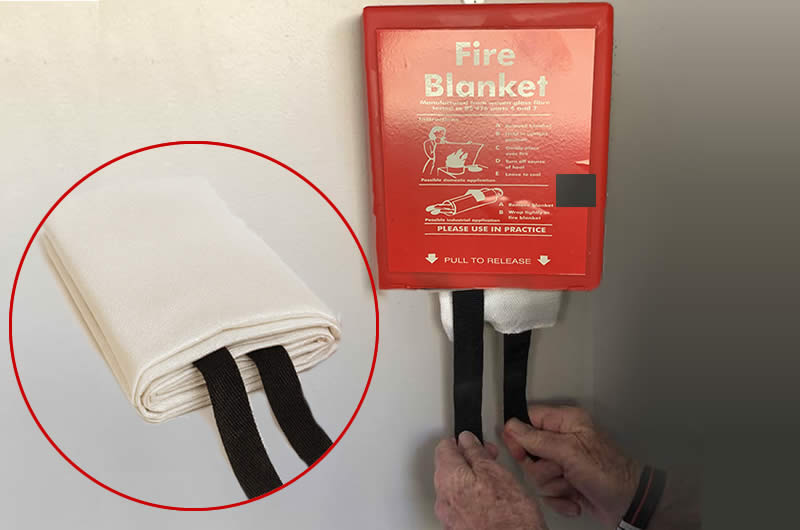
Especially if you cook with gas, consider investing in a fire blanket and keeping it within easy reach so you can quickly smother a fire in a pan or on the stove top. Fire blankets are inexpensive, require no training to use, and leave no harmful residue. You can buy them at retail outlets like Makro and Builders, or online at Takealot.
Clean up spills immediately, especially oily spills on the floor that may cause slipping. If you need a step ladder to reach items on high shelves, get one with a bar to hold on to. Never use a chair as a step ladder.
Avoid distractions while cooking and make sure all stove plates are turned off and appliances are unplugged before leaving the kitchen.

5. Make Stairs Safer
If your home has steps or staircases, make sure there are sturdy handrails on both sides. Highlighting the edge of steps with contrasting tape can also help improve visibility and reduce the chances of tripping and falling.
6. Be Prepared for Emergencies
Keep emergency numbers handy or programme them into your phone. Consider using a personal alert system so you can easily summon help if you can’t get to the phone.
7. Know when to ask for help
Don’t wait until after you suffer an accident at home to accept that you need help to safely manage daily living. Having support at home allows you to maintain your independence and enjoy your home without worrying.
Chat to us about home help and assisted living options available through Tafta. Call 031 332 3721 or email intake@tafta.org.za for advice.
By paying attention to safety now, you’re not only preventing accidents – you’re helping to create an environment where you can live life fully and confidently.
Small adjustments can reduce the risk of falls, and give you the confidence to manage daily routines and stay connected to the activities you enjoy.


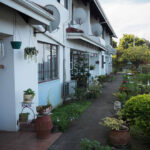 Affordable accommodation for life
Affordable accommodation for life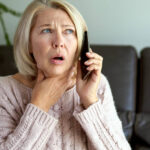 Stay safe online – learn to recognise these common scams
Stay safe online – learn to recognise these common scams Community support for Mandela Day was inspiring
Community support for Mandela Day was inspiring Tafta proud to be placed in the Top 3 for the KZN Top Brand Awards
Tafta proud to be placed in the Top 3 for the KZN Top Brand Awards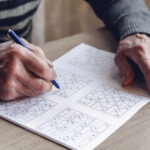 Puzzling it out – brain-boosting fun for older adults
Puzzling it out – brain-boosting fun for older adults Tafta Council member awarded MBE
Tafta Council member awarded MBE Concern and confusion over SASSA Old Age Grant payments
Concern and confusion over SASSA Old Age Grant payments Communication through the ages – we’ve come a long way!
Communication through the ages – we’ve come a long way!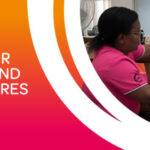 Vote for us in the KZN Top Brand Award
Vote for us in the KZN Top Brand Award Men’s health – signs older men shouldn’t ignore
Men’s health – signs older men shouldn’t ignore